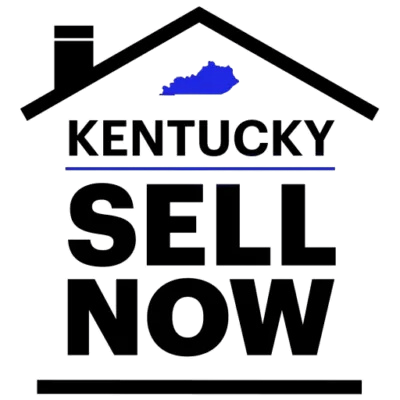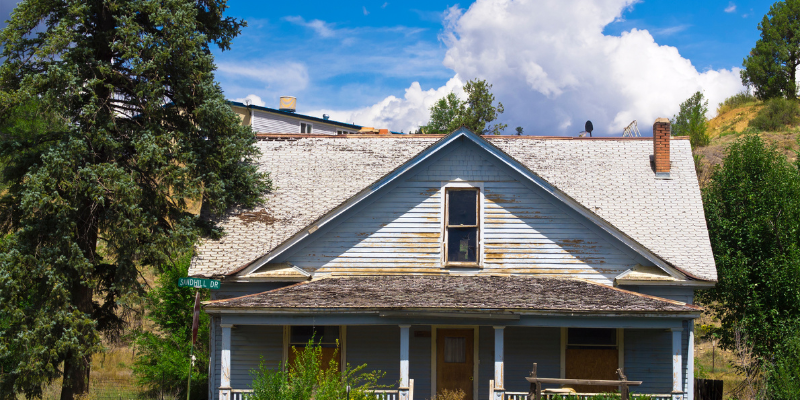
Explore if a house can be condemned for mold in Louisville, Kentucky, and learn about the risks and solutions with the help of the Kentucky Sell Now. Protect your property from mold and understand your rights and options.
Can Mold Cause My Louisville House to Be Condemned?
Comprehending Louisville’s Mold Regulations and Condemnation
Mold can be a big problem in houses, especially in Louisville, Kentucky, where humidity encourages its growth. The city has rules to keep homes safe and healthy. If mold is not addressed, your house could be condemned, making it unsafe to live in due to health and safety concerns.
Local officials in Louisville inspect homes for safety. If they find mold, owners must fix it quickly, or the house could be deemed unlivable.
What Factors Lead to Mold-Related Condemnation in Louisville?
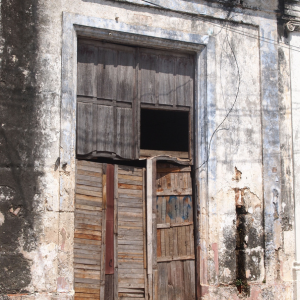
Many factors might lead to a house being condemned due to mold in Louisville. Here are some crucial aspects to consider:
- Health Hazards: Mold can be bad for health, especially for people with allergies or breathing problems. Air with high mold levels is unhealthy.
- Mold Damages Houses’ Structures: It thrives in moist regions and rots wood, weakening buildings.
- Property Value: Mold reduces home value. This impacts the owner and community.
- Inspection Results: If the home has a lot of mold, it may fail health and safety testing and be condemned.
- Livability: A residence must not affect people’s health. A home with mold in vital systems like heating and cooling can fail these criteria.
Homeowners should check for mold regularly and fix problems immediately to prevent condemnation. If you think there is mold in your home, get a professional to look at it and learn how to fix it. Acting fast can protect your health and property.
Identifying Mold Problems in Your Louisville Home
Common Signs of Mold Infestation in Kentucky Homes
Mold can creep into your home, where moisture is often high. The following are indicators that mildew may be present:
- Musty Smell: If your house has a strong, musty smell, it could mean that mold is up there.
- Visible spots: Look for black, green, or white spots that you can see on the floors, walls, or ceilings.
- Water Damage: Mold may have grown where there were leaks or water stains in the past.
- Breathing Problems: If you cough or sneeze for no reason, it could be because of mold in the air.
- Property Problems: Mold can make your home less valuable, so you should get rid of it before you sell it to a company that buys houses in Paris and other cities.
Frequent inspections assist in identifying these indicators and shielding you from any health risks.
How to Tell if You Have a Serious Mold Problem Requiring Professional Help
Sometimes, mold problems are too big to handle alone. Here’s how to know if you need professional help:
- Large Areas: If mold is present over 10 square feet, contact a professional.
- Health Problems: Professional testing may be necessary for severe allergies or other health conditions.
- Hidden Mold: Mold may be inside walls if you can smell it but not see it.
- DIY Mistakes: Seek assistance if you attempt cleaning but the mold returns.
In Louisville, the experts can inspect and test for mold to find the best solution.
Types of Mold Commonly Found in Louisville and Their Severity
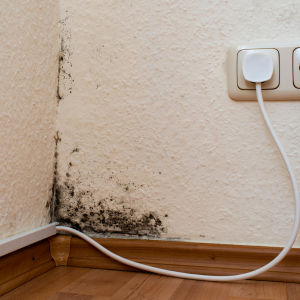
Knowing the types of mold in your home helps you understand the risks:
- Aspergillus: This common indoor mold can cause allergies and breathing problems.
- Cladosporium: A fungus that is commonly found in wood and fabrics. Although it can induce asthma symptoms, it is not highly toxic.
- Stachybotrys (Black Mold): A toxic mold that necessitates immediate removal due to its severe health hazards.
Different molds have different risks. Knowing which one is present helps decide the severity of your problem. Mold spores affect indoor air quality, so dealing with them can keep your Louisville home safe and healthy.
Louisville Mold Remediation and Prevention
Procedures for Mold Inspection and Testing in Kentucky
Mold can pose a significant challenge for homeowners in Louisville. It is crucial to implement an appropriate mold inspection and testing procedure in order to address this issue. The process is as follows:
- Initial Inspection: A mold inspector comes to your property in Kentucky to look for visible mold and signs of moisture. They check places like basements, bathrooms, and attics.
- Moisture Detection: The inspector uses special tools to find moisture in the air and on surfaces. High wetness can indicate mold growth.
- Testing air quality: For invisible mold spores. This indicates mold in your home.
- Detailed report: With findings and solutions, this is extremely useful when selling or purchasing a home.
To safeguard your property worth and your family’s health, seek an examination immediately if you discover mold.
Cost of Mold Remediation in Louisville: Factors & Financial Assistance
Knowing how much mold remediation costs in Louisville is important for homeowners. The price can change based on several things:
- Extent of Mold Damage: Bigger mold problems usually mean more expensive fixes.
- Location of Mold: If mold is in hard-to-reach spots, removing it may cost more.
- Contractor Fees: Prices can vary by contractor, depending on what services they offer.
- Repairs Needed: Extra repairs will increase the cost if mold has damaged your property.
State or municipal programs may assist Kentucky homeowners in paying for mold remediation. Professional contractors can suggest cheap options.
Preventing Mold Growth in Your Louisville Home: Practical Tips & Maintenance
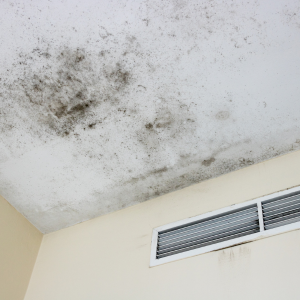
Safety and health depend on keeping mold out of your Louisville house. These are some simple suggestions:
- Control Moisture: Check for leaks in plumbing, roofs, and windows. Use dehumidifiers in damp areas.
- Regular Cleanup: Keep bathrooms and kitchens dry and clean. Wipe up spills right away.
- Ventilation: Make sure there is good airflow in moist areas like bathrooms and basements. Use exhaust fans.
- Water Damage Prevention: Fix water damage quickly to stop mold from growing and avoid future costs.
By following these tips, you can lower the risk of mold affecting your home and keep a safe environment for your family. Staying mold-free depends on regular upkeep.
Legal Aspects of Mold and Condemnation in Louisville
Landlord Responsibilities Regarding Mold in Rental Properties in Louisville
Landlords in Louisville have clear duties regarding mold in rental properties. They must keep the property safe and livable, which involves regular check-ups and fixing any mold problems immediately.
- Lease Agreements: Landlords should put mold prevention and cleanup rules in the lease. This sets clear rules for both parties.
- Inspections: Regular checks help spot mold early, reducing legal risks.
Ignoring mold issues can lead to legal trouble, so landlords should take immediate action.
Appealing a Condemnation Order Based on Mold in Louisville: Legal Recourse
If your Louisville property gets a condemnation order because of mold, you can fight it:
- Document Everything: Record inspections, talks, and any mold fixes. This is key for your appeal.
- Hire an Attorney: A lawyer who knows Louisville’s property and mold laws can help you in court.
- File an Appeal: Take your appeal to court with all your proof, explaining why the condemnation should be canceled.
Working with a lawyer and preparing well may help you appeal successfully.
For more help or to discuss selling options, contact us.
FAQs:
Can a house in Louisville, Kentucky, be condemned for mold issues?
Yes, a house can be condemned if mold poses a big health risk to people living there. Bad mold problems affecting the home’s structure or air quality may make it unsafe.
What signs indicate mold could lead to house condemnation?
The presence of a significant amount of black mold, damage to the house structure, persistent water issues, and elevated mold spore levels that harm health are all indicators. Experts can identify these issues through routine inspections.
How does mold impact property value in Kentucky?
Mold can reduce a property’s value due to health risks and associated cleanup expenses. Investor home buyers in Versailles may be unwilling to purchase properties containing mildew, which can negatively impact their value and likelihood of sale.
What are the legal responsibilities of landlords regarding mold in Kentucky?
Landlords must fix mold problems that make a place unlivable or break health codes. If they don’t, tenants can take legal action, and landlords might face fines.
Are there specific Kentucky laws addressing mold and property condemnation?
Kentucky doesn’t have special mold laws, but there are property maintenance and building rules. These rules require safe living places, and serious mold problems can lead to a home being condemned for safety reasons.
How can homeowners prevent mold-related condemnation?
Homeowners can prevent mold issues by having good ventilation, fixing leaks immediately, keeping gutters clean, and using dehumidifiers. Regular inspections can also find problems early.
Are there emergency services available for severe mold situations in Louisville?
Yes, emergency services and mold experts can help in bad cases. Acting fast is important to stop health risks and keep the property from being condemned.
Key Insights
- Homes in Louisville can be condemned because of serious mold problems, which affect their value and safety.
- Knowing how mold growth can lead to house condemnation in Kentucky is important.
- Houses in Louisville are at risk of being condemned due to mold-related health hazards and damage.
- Talk to experts about mold inspection and condemnation processes in Kentucky.
- Fix mold issues quickly to avoid legal trouble and possible condemnation.
- If mold isn’t handled well, it can cause homes in Louisville to be condemned.
- Homeowners need to know about mold health concerns and related laws in Kentucky.
- Condemnation cases in Louisville show how important regular property checks are.
- Mold can hurt indoor air quality and might lead to the condemnation of properties it affects.
- Getting legal advice on mold-related issues can help prevent house condemnation in Louisville.
- Landlords in Kentucky must tell tenants about mold issues to avoid legal problems.
- Good mold remediation can stop potential condemnation and protect real estate investments.
- Keep an eye on mold growth and fix moisture problems quickly to avoid property condemnation.
- In bad mold cases, houses in Louisville may need emergency help.
- Knowing Kentucky’s laws on mold and condemnation protects homeowners’ properties.
- Good airflow, controlling moisture, and regular checks can reduce mold risks.
- Kentucky’s humid weather makes mold infestations more likely, so preventive steps are needed.
- Know your rights and duties about mold to protect your property’s value.
- Get help from professionals to deal with mold lawsuits and condemnation proceedings in Kentucky.
- We offer resources to handle mold problems and avoid house condemnation effectively.
Need to sell your home fast? Kentucky Sell Now offers fair cash deals, handles all details, and ensures a hassle-free sale. Call (502) 610-0070 for a no-obligation offer today!
